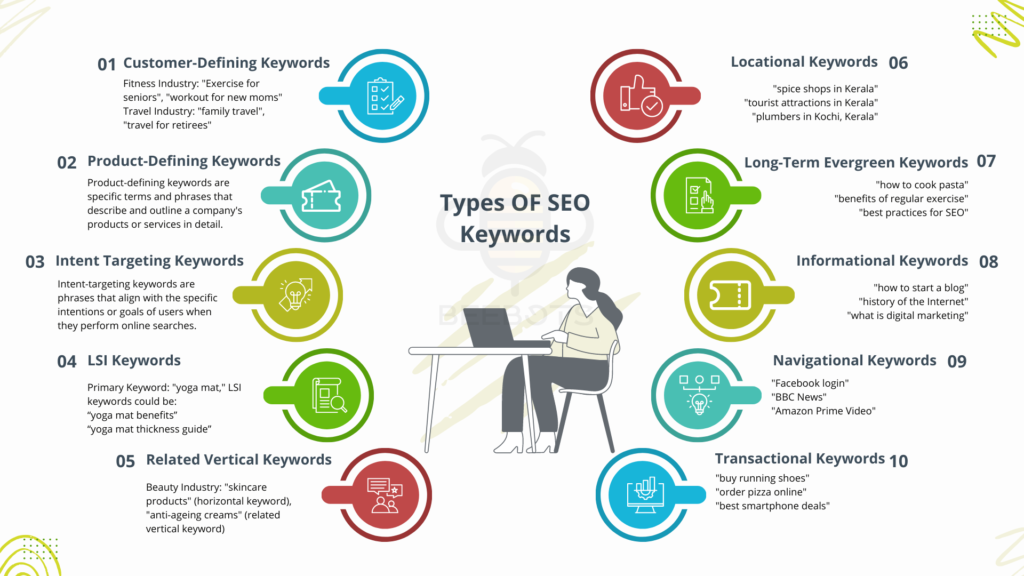What is SGE in SEO?
Search Generative Experience (SGE) is a new feature introduced by Google that uses generative AI to improve search results. Different from traditional Search Engine Optimization (SEO), which mainly focuses on making content visible through keyword strategies and backlinks, SGE creates dynamic content directly in the search results.

Overview of SEO vs. SGE
The rise of Search Generative Experience (SGE) marks a big change in how search engines work, especially when compared to traditional Search Engine Optimization (SEO). Knowing the differences between these two methods is essential for businesses and marketers looking to keep up with the changing online world.
SEO vs. SGE – Key Differences

Fundamental Differences Between SEO and Search Generative Experience (SGE)
- SEO – SEO works by optimizing content to rank better on search engines. This includes using the right keywords, building links from other sites, and having a good site structure. The goal is to make the website more visible on search results pages by following set rules.
- SGE – SGE uses advanced AI to create detailed answers directly within search results. Instead of just showing existing web pages, it pulls together information from many sources to answer user questions.
User Experience
- In traditional SEO, users usually click on several links to find the information they are looking for. SEO aims to bring more traffic to websites by helping them rank higher in search results.
- SGE improves user experience by giving quick and detailed answers right on the search page. This means users can find what they need without leaving the search results, which can make them happier and may lead to less overall traffic to websites.
Content Quality Requirements
- In traditional SEO, websites are often rewarded for using the right keywords and building backlinks. But this approach doesn’t always focus on how detailed or good the content is. As long as a site has the right keywords and links, it can rank well, even if the content is not very informative.
- On the other hand, SGE focuses a lot on high-quality and detailed content that matches what users want. This means that websites that offer in-depth and trustworthy information are more likely to show up in SGE-generated answers. By putting quality first instead of just keywords, SGE helps ensure that users get the best information possible. So, it’s important for businesses to create valuable and useful content.
Strategies
- To do well with traditional SEO, businesses usually focus on optimizing specific keywords and improving their website structure.
- For SGE, businesses need to change their approach by creating content that is not just filled with keywords but also relevant and engaging for users. This includes using semantic keywords—which are related terms that help search engines understand the context better. Additionally, it’s important to ensure that the website is mobile-friendly and loads quickly. By doing this, businesses can meet user needs more effectively and increase their chances of being featured in SGE results.
Business Impacts – SEO vs. SGE
Strategic Adaptation for Businesses
As SGE is rolled out globally, businesses must prepare for a landscape where traditional SEO practices may no longer be sufficient. Here are some strategies to consider:
- Prioritise Content Quality: Create detailed and well-researched content that thoroughly addresses user questions.
- Implement Structured Data: Use structured data markup to help AI better understand the context of your content.
- Adopt AI Tools: Utilize tools powered by artificial intelligence for content creation and optimisation that align with SGE’s requirements.
Conclusion
Experts believe that in the next 3 to 5 years, SGE will become an important part of SEO strategies, changing the way content is created and ranked on search engines. Businesses that adapt to these changes in advance are likely to keep a competitive advantage in visibility and customer engagement. While traditional SEO is still important, the rise of SGE calls for a review of strategies to ensure that businesses remain relevant in an increasingly AI-focused environment.
For more digital marketing tips and updates, visit our Beebots Learning Hub blog page.


